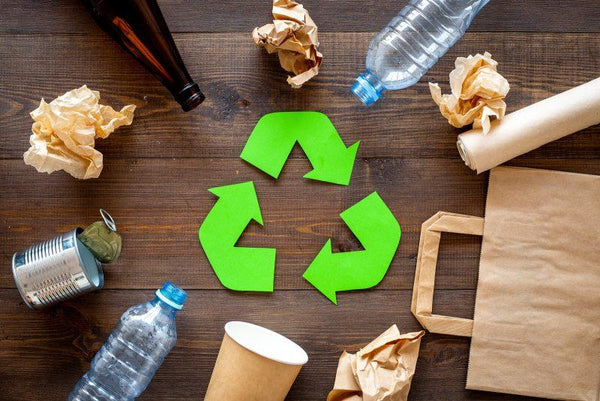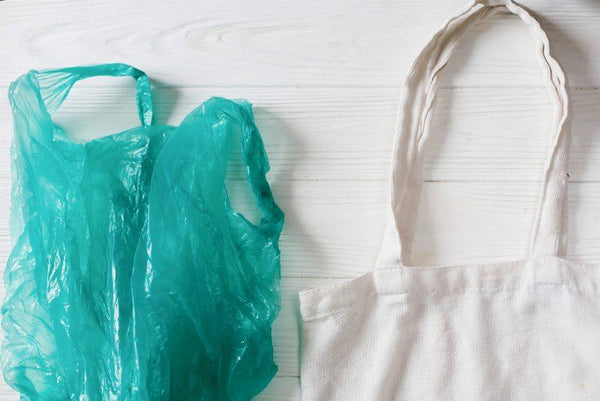
The European Parliament voted for a complete ban on a range of single-use plastic waste across the union in a bid to stop pollution of the oceans. The proposal also called for a reduction in single-use plastic waste for food and drink containers, including plastic cups.
The new law, overwhelmingly backed by the European Parliament asserts 10 single-use plastic products with readily available alternatives will be banned by 2021. The EU states and all residing within them are now obligated to recycle 90 percent of plastic bottles by 2025. Plastic producers are expected to help cover costs of waste management, according to The Guardian.
Single-use plastic products are, as the name suggests, used just once and then thrown away (be sure to check out how Pregis’ commitment to reducing the consumption of raw materials that contribute to single-use plastic culture!). Single-use plastics include things like straws, plates, cups and cotton buds, and can take several centuries to degrade in the oceans where they are increasingly observed to be consumed by marine life.
According to the European Commission, these plastics make up 70 percent of all marine litter.
A ban was proposed in May 2018 after the public outcry and awareness over the issue reached a tipping point. A vote at the European Parliament led to an agreement to enforce the ban by 2021.
The ban is comprehensive, even at a glance. Aside from the 2021 complete ban on plenty of single-use products, the use of plastics for which no alternatives currently exist (largely food packaging) will need to be cut down by 25 percent by 2025. Beverage bottles will also be required to be collected and recycled at a rate of 90 percent by 2025. Cigarette butts, remarkably resilient components of plastic pollution, will have to be reduced by 50 percent by 2025, and 80 percent by 2030.
The European Parliament has overwhelmingly approved a ban on single-use plastics such as straws, plates, cutlery and cotton-swab sticks in Europe by 2021, joining a global shift as environmentalists emphasize the urgency of halting the use of materials that are detrimental to the planet.
This urgency isn’t lost on us at Pregis—in fact, sustainability remains at the core of everything we do. Our Renew packaging products, for example, are designed to meet the growing need for sustainable packaging alternatives, offering environmentally-conscious companies the choice to go green. After all, we believe sustainability starts with the packaging you choose.
In October 2018, European Union lawmakers moved to ban these widely-used, throw-away single-use plastics and put a larger emphasis on manufacturers recycling in an effort to mitigate ocean pollution.
The directive targets some of the most common ocean-polluting plastics: The list of banned items such as cutlery and cotton buds was chosen because there are readily available alternatives, such as paper straws and cardboard containers. Other items will still have to be reduced by 25% in each EU country by 2025. Examples given include burger boxes and sandwich wrappers.
The EU’s research on the topic found about 150,000 tons of plastic is tossed into European waters every year. That is only a small contributor to the global problem, with an estimated eight million tons of plastic entering the world’s oceans annually. And, once there, plastic can travel great distances on ocean currents.
The European Commission proposed a ban in May, following a surge in public support attributed to documentaries like David Attenborough’s “Blue Planet” series on the BBC. The measure still has to clear some procedural hurdles, but is expected to go through.
According to Reuters, the EU recycles only a quarter of the 25 million tons of plastics waste it produces per year. And that statistic speaks to the EU alone ignoring the myriad companies in the U.S. that fail to recycle! Learn more about Pregis’ recycling initiatives here—we’re proud to be members of How2Recycle!
Elsewhere in the EU, lawmakers added polystyrene fast food containers and products made of oxo-degradable plastics to the proposed list. Fast food containers are just one avenue to think about: Waste from cigarette butts, which can take over a decade to degrade in water, would also have to be cut by 50 percent in 2025 and by 80 percent in 2030 in order for the EU to meet its goal. EU countries would also have to clean up and collect the ample fishing gear, often made of plastic, polluting beaches.
The European parliament has overwhelmingly backed a wide-ranging ban on single-use plastics in an effort to tackle pollution in seas, fields and waterways. Under the EU’s proposed directive, items including plastic straws, cotton swabs, disposable plastic plates and cutlery will be banned by 2021, and 90 percent of plastic bottles will be recycled by 2025.
Currently, much plastic waste is washed into the ocean where it may take centuries to fully degrade. Lightweight single-use items are among the most problematic plastics, as they can easily travel long distances, absorbing toxins along the way and damaging marine flora and fauna.
The EU’s proposed legislation catapulted the union into a leadership position in tackling the plastic pollution crisis. Whether you agree or disagree with their approach, the EU has made it easier to address the global issue of rampant plastic pollution.
Those plastics have a huge effect on marine life. Fish and large aquatic mammals are increasingly killed by humans’ plastic pollution. Whales can eat plastic bags, making it impossible for them to eat real food which can eventually lead to their deaths.
Even when plastic debris breaks down, it does not decompose the way other products like wood do. Instead, it breaks down into smaller and smaller pieces, eventually becoming “microplastic.”
These tiny fragments often end up in fish, which can then be easily passed on to humans.
The use of other common plastics, including single-use burger and sandwich boxes that don’t have practical alternatives, must be reduced by at least 25 percent by 2025 according to the EU. Additionally, 90 percent of beverage bottles must be recycled under the proposal.
Under the proposal, 10 single-use plastics that most often end up in the ocean will also be prohibited in the European Union. In fact, the European Commission put forward the legislation in May, after the organization’s research found that plastics make up 80 percent of marine litter on European beaches, posing a major threat to coastal biodiversity. The commission found that marine litter costs the European Union $295 million to $793 million per year.
You’re more-than-likely already on board. Regardless, The World Economic Forum presents a few additional convincing facts:
China was, until recently, a dumping ground for much of the world’s potentially recyclable waste. However–appropriately!–the country no longer accepts the entirety of Earth’s waste. Plastics that were once repurposed are now being sent to landfills. After accepting so much waste for such a long period of time, the Chinese government decided it shouldn’t keep taking on all the world’s trash, especially plastic waste.
The world is newly growing familiar with plastic bans. Over time, we predict reliance on plastic will wane.
You’ve already made the right choice in the effort to reduce plastic consumption and responsibly recycle the plastics you can’t avoid using—you’ve chosen Pregis as your packaging professional.
Resources:

China has long been treated as our planet’s repository for plastic waste. The nation has accepted 45% of the world's total plastic recycling since reporting to the United Nations Comtrade Database began in 1992.

Even before plastic straw bans grew trendy, California was at the forefront of using less plastic and promoting more sustainable living. California pioneered a statewide ban on plastics beginning in 2016, when the state became the first in the U.S. to ban most stores from providing customers with single-use plastic bags, following a successful referendum. [...]

Social media platforms have become more than just a way to keep in contact with your family and friends. These platforms have evolved into something that can make or break your company. With social media, you can target your exact audience and customer base with just a few clicks. However, not all platforms are created [...]